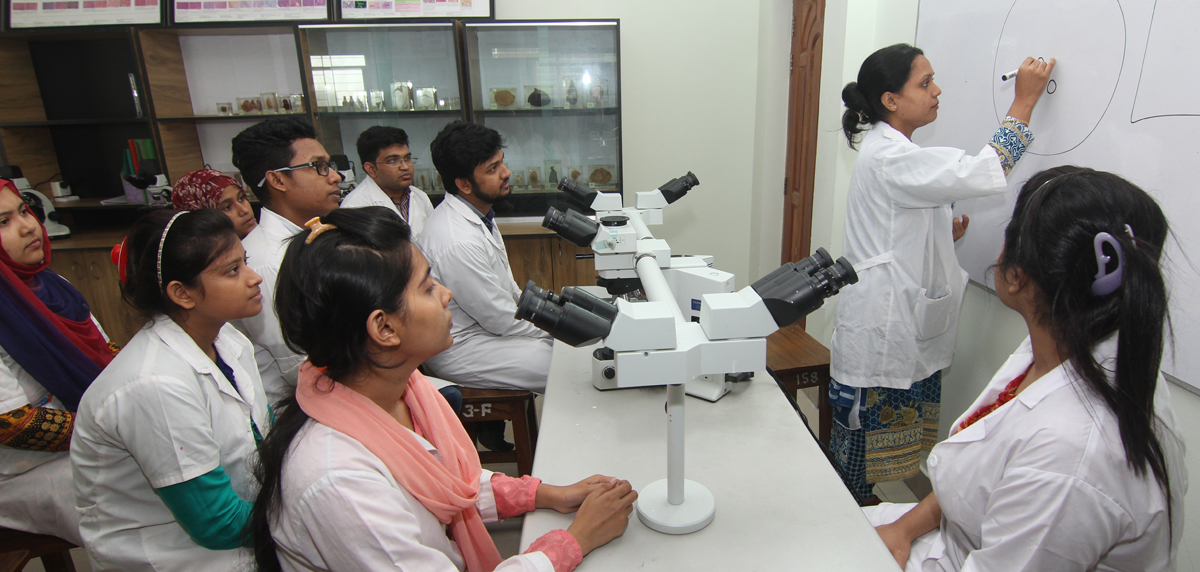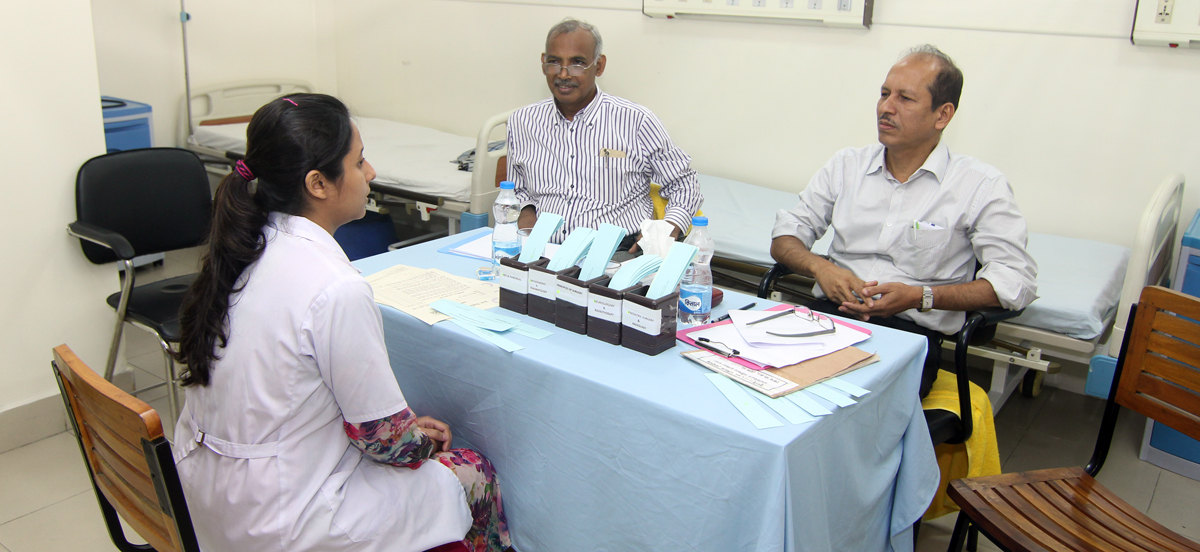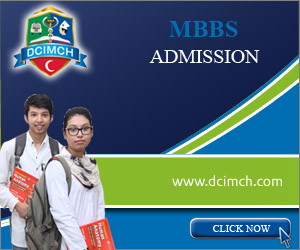The college offers 5 years MBBS course and One year Internship Training in Dhaka Central International Medical College as required by Bangladesh medical & Dental Council leading to MBBS degree from the University of Dhaka. The academic session starts from January of each year or as suggested by the Government of Bangladesh. As per Dhaka University rules, all the students need to have 75% attendance in the classes to be eligible for attend the professional exams
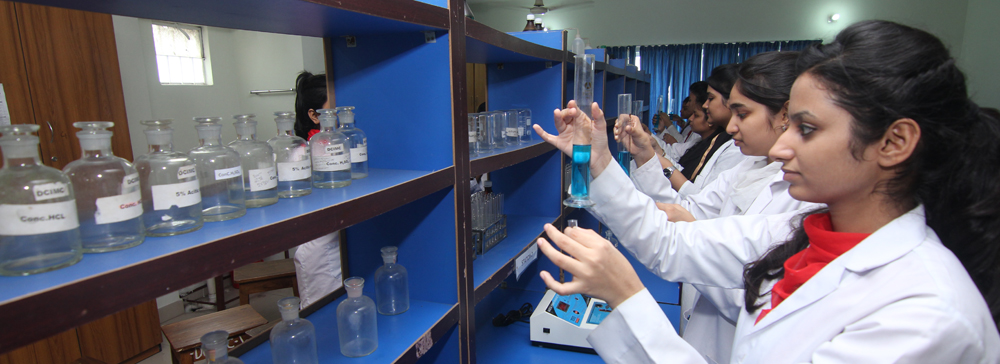
Objective of MBBS course:
At the end of the MBBS course students shall:
1. Acquire knowledge and understanding of
- the sciences upon which medicine depends and the scientific and experimental methods.
- the structure, function and normal growth and development of the human body and the workings of the mind and their interaction, the factors which may disturb these, and the disorders of structure and function which may result.
- the etiology, natural history and prognosis of the common mental and physical ailments. Students must have experience of emergencies and a good knowledge of the common diseases of the community and of ageing processes.
- normal pregnancy and childbirth, the common obstetric emergencies, the principles of ante-natal and post natal care, and medical aspects of family planning and psycho-sexual counseling.
- the principles of prevention and of therapy, including health education, the amelioration of suffering and disability, rehabilitation, the maintenance of health in old age, and the care of the dying.
- human relationships, both personal and social and the interaction between man and his physical, biological and social environment.
- the organization and provision of health care in the community and in hospital, the identification of the need for it, and the economic, ethical and practical constraints with which it operates; and
- the ethical standards and legal responsibilities of the medical profession.
2. Develop the professional skills necessary to
- elicit, record and interpret the relevant medical history, symptoms and physical signs, and to identify the problems and how these may be managed.
- carry out simple practical clinical procedures.
- deal with common medical emergencies.
- communicate effectively and sensitively with patients and their relatives.
- communicate clinical information accurately and concisely, both by word of mouth and in writing, to medical colleagues and to other professionals involved in the care of the patient; and
- use laboratory and other diagnostic and therapeutic services effectively and economically, and in the best interests of his patients.
3. Develop appropriate attitudes to the practice of medicine, which include
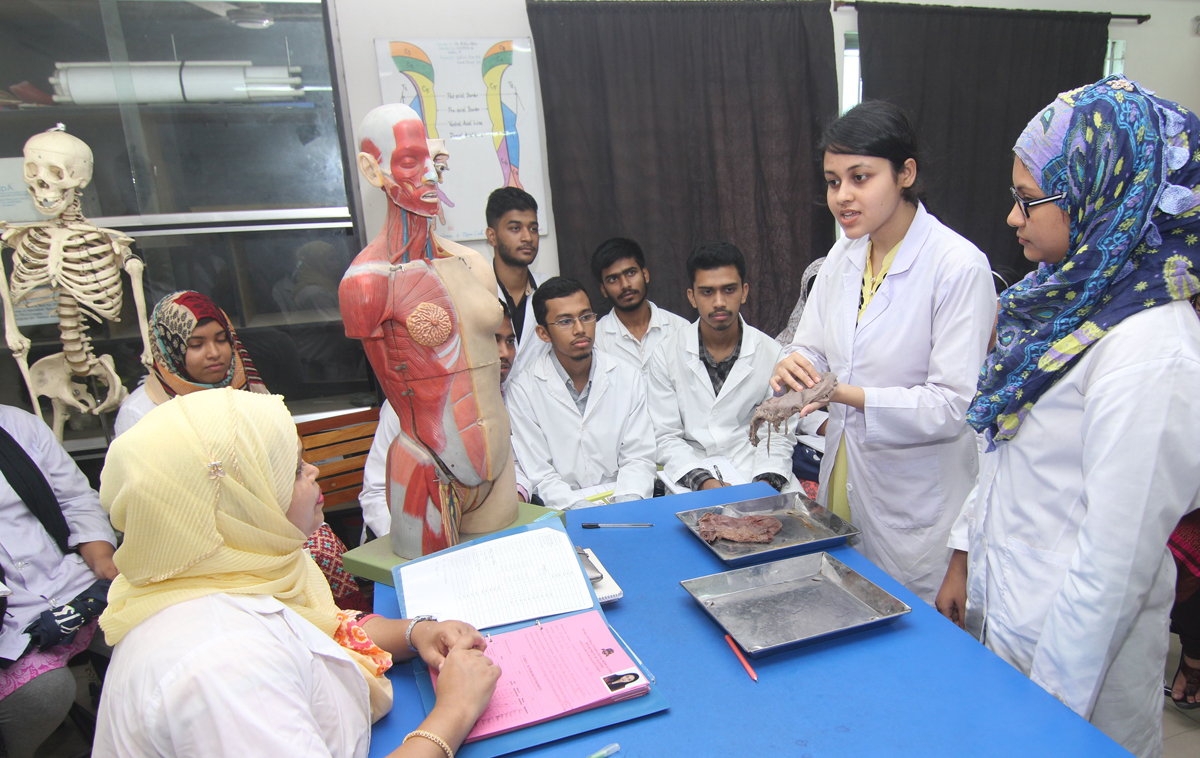
- recognition that a blend of scientific and humanitarian approaches is needed in medicine.
- a capacity for self-education, so that he may continue to develop and extend his knowledge and skills throughout his professional life, and recognize his obligation to contribute if he can to the progress of medicine and to new knowledge.
- the ability to assess the reliability of evidence and the relevance of scientific knowledge, to reach conclusions by logical deduction or by experiment, and to evaluate critically methods and standards of medical practice.
- a continuing concern for the interests and dignity of his patients.
- an ability to appreciate the limitations of his own knowledge, combined with a willingness, when necessary, to seek further help; and
- the achievement of good working relationships with members of the other health care professions.

